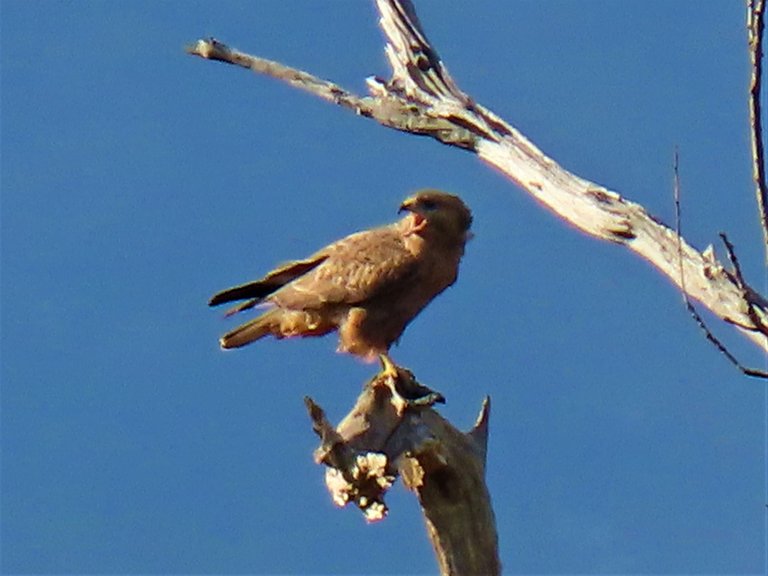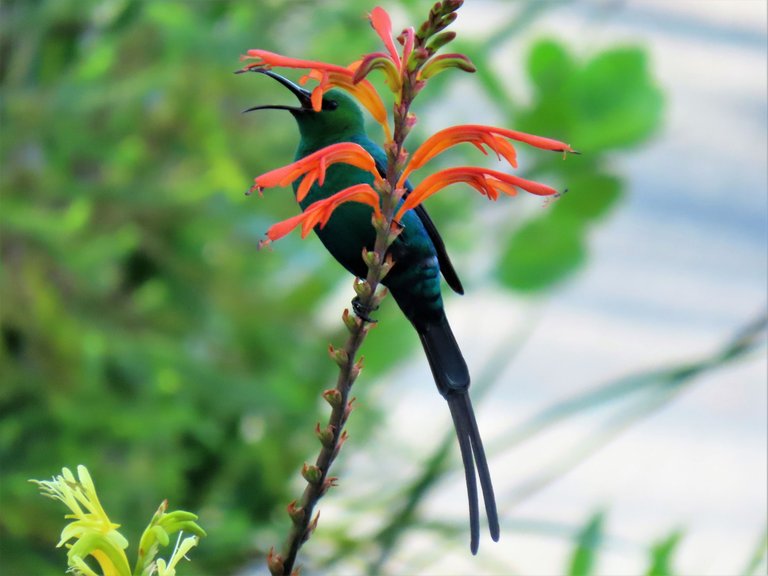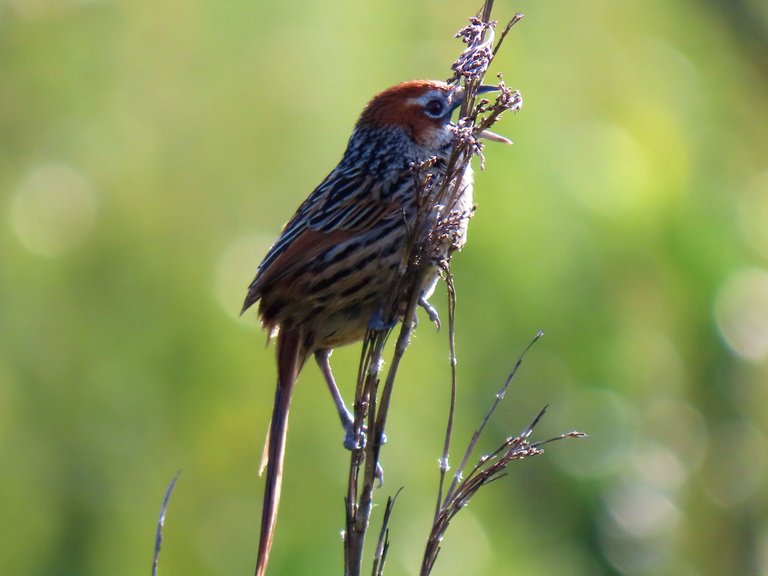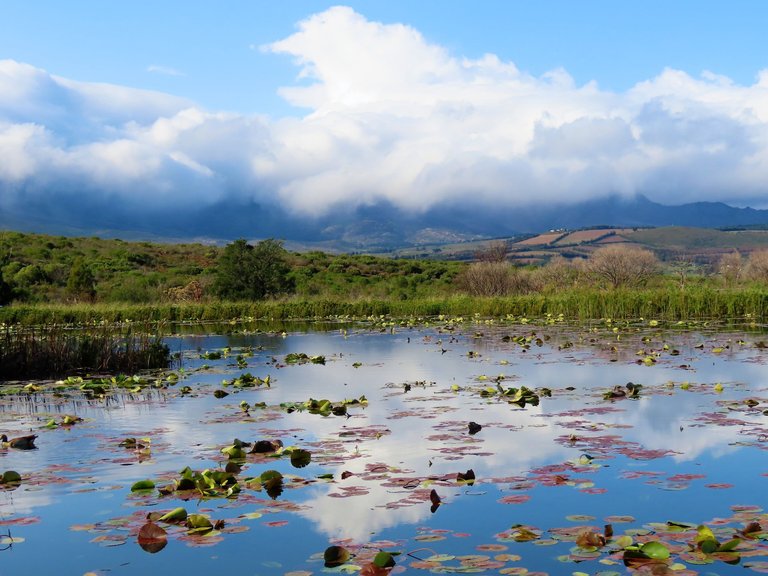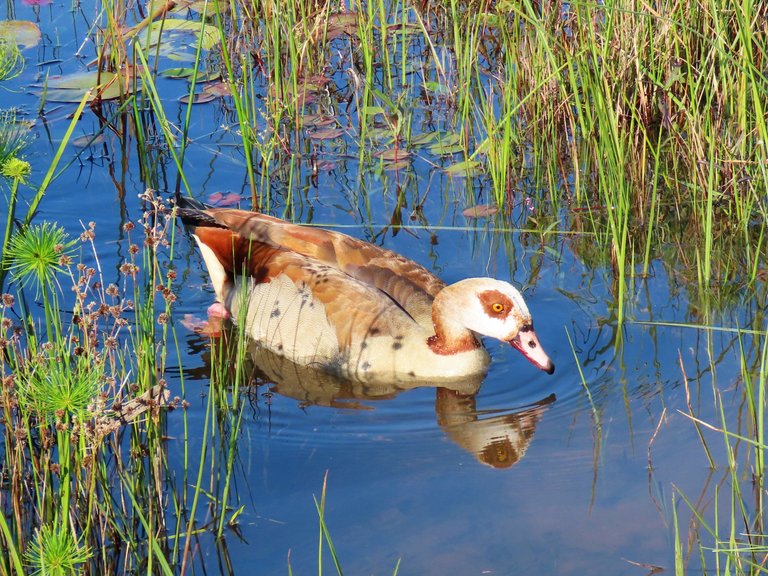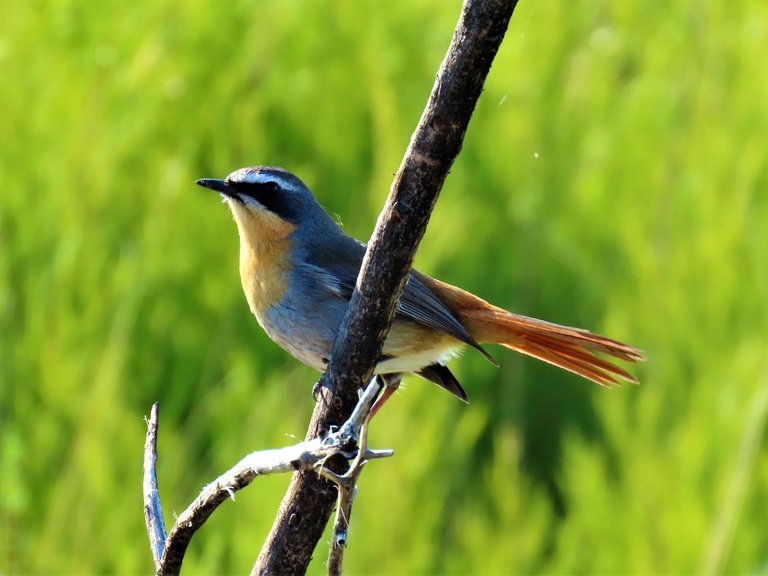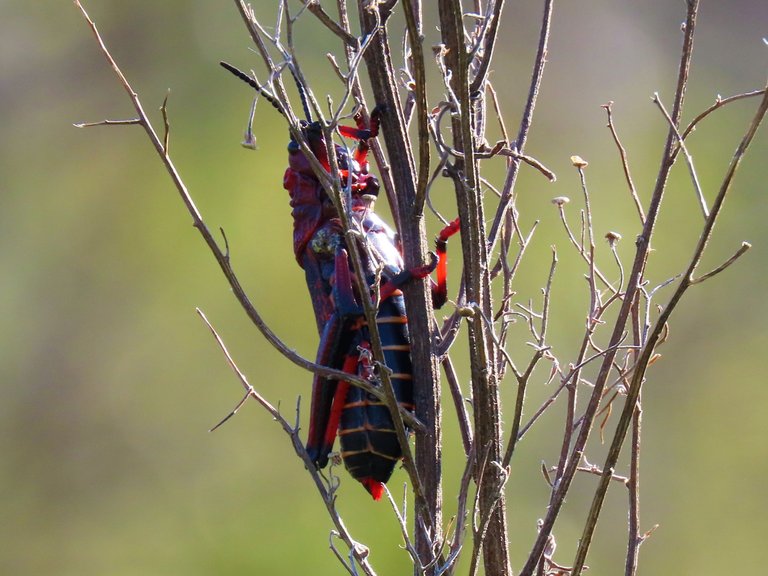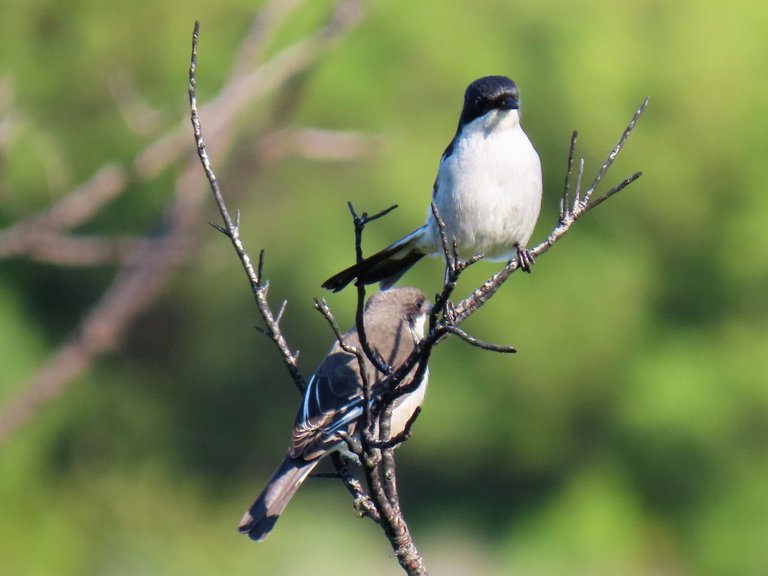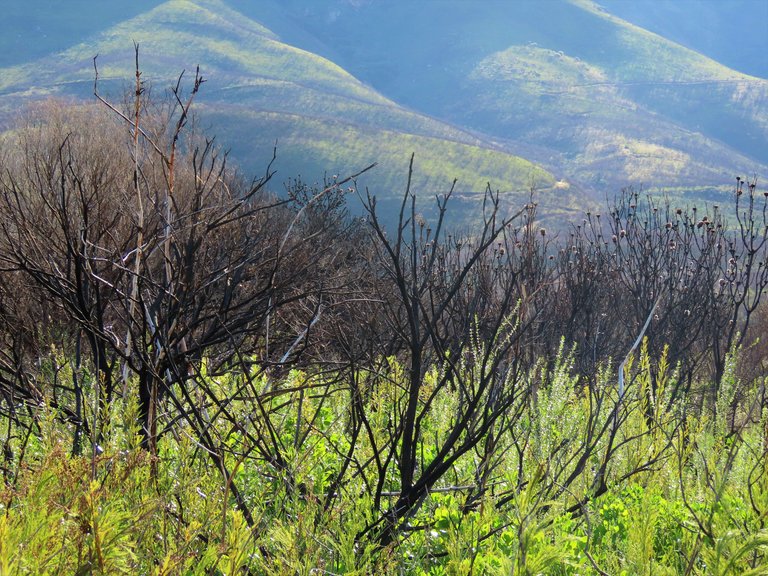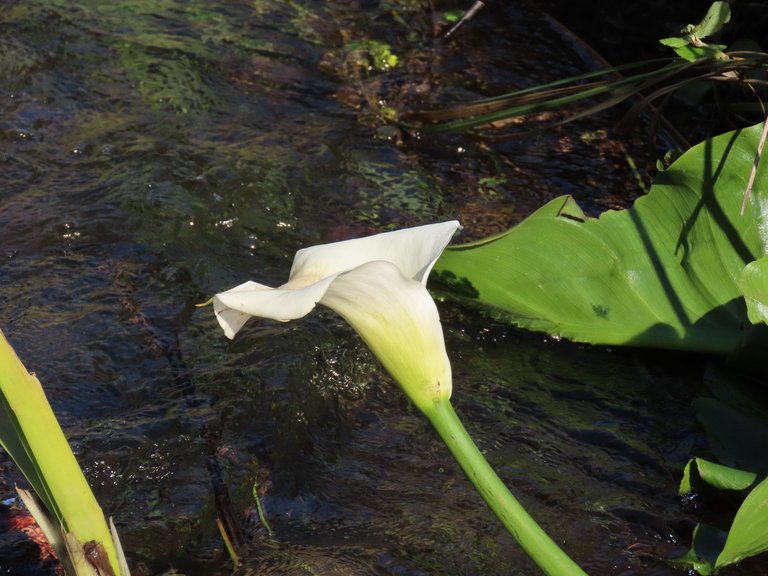Since the bad wildfire, we don't come here often anymore, but I wanted to see if any birds returned.
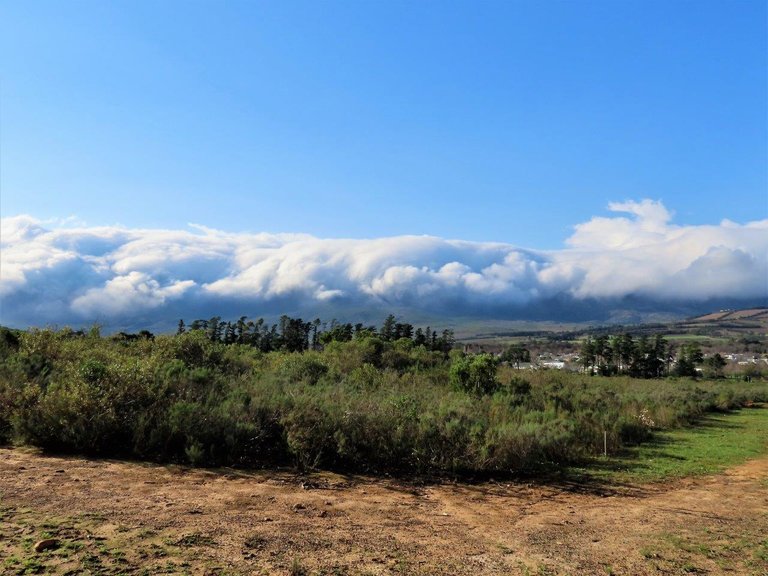
The light was not very good, as a 40kph wind was blowing and things were a bit hazy, especially at the long distance shots.
Once, this place was totally green with magnificent King Protea flowers. The Cape Sugarbird, with its very long tail, was in abundance here and I have posted them a few times over the years. Sadly, today, not one could be seen. All of the other birds that feed on the proteas, are also still not back, but thankfully in here you will see that the wildlife is ever so slowly starting to return. In a few years from now, we hope that everything will again be fully restored. Especially the restaurant, as they make a lovely cup of coffee :)
See what I mean about the haziness? I took this photo below, of a junior Jackal Buzzard (Buteo rufofuscus) at a long distance and it was hazy.
So, I decided to rather stick to taking photos of the closer stuff, such as this singing Malachite Sunbird (Nectarinia famosa).
This seems to be a young Gurney's Sugarbird (Promerops gurneyi). They are common residents in the Eastern Cape, but some migrate during winter to lower altitudes, and this guy is now in the Western Cape.
Usually, a lot of waterbirds can be found here, with many different species, but not now anymore. Only the guy in the photo below was in the dam.
An Egyptian Goose (Alopochen aegyptiaca) came to have a look at us.
This is a Cape Robin-Chat (Cossypha caffra).
Here below, we have a new one for me and it is a Foam Grasshopper (Dictyophorus spumans). They release a poison when attacked by predators, and a dog can die if it eats one of these. Frequently located close to mountains.
The dad with his youngster, and these are Southern Fiscals (Lanius collaris).
You can see the black burnt trees at the front, and behind that the black protea bushes. Although the greenery is recuperating, the protea bushes will only release their seeds gradually during the recovery process, and that is why it takes so long to be restored.
But thankfully there's a lot of water in the wetlands and they reckon that the protea bushes will grow again in about 5 years time.
We all think that wild fires are totally bad, but did you know that if the protea bushes don't burn then they will not propagate. They need fire to release their seeds. Fire is also a restorer as it removes many exotic tree and plant species, and subsequently the soil will recover. The bad thing about a fire, is that it kills small animals and insects, and also fire presents a great danger to the farmers, as they could lose their entire crops. We have a load of fires here, all over the province, every year and the South African fire fighting teams are all specialists in the control of fires. To wit, 200 of our fire fighters are currently in Canada to assist with the fires over there. Still, to me personally, it is never a good thing to see, as my concern is for the little animals and birds.
Just my own thoughts here.
I hope that you have enjoyed the pictures and the story.
And That's All Friends.
Photos by Zac Smith-All Rights Reserved.
Camera: Canon Powershot SX70HS Bridge camera.
Thank you kindly for supporting a post on behalf of @papilloncharity
